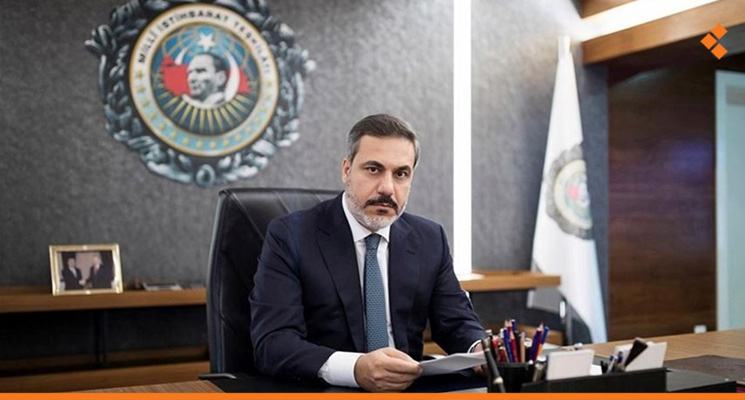Turkish President Recep Tayyip Erdogan embarked on his new presidential term with a significant cabinet overhaul amidst Turkey’s ongoing economic crisis and inflation. With a focus on pursuing a policy of “zero problems” and fostering closer ties with neighbouring and global nations, Erdogan appointed new ministers for the economy, defence, and foreign affairs.
As Erdogan assumes a renewed mandate, various analyses and reports from Arab and foreign media highlight his imperative task of charting a fresh course for Turkey’s foreign policy, aligning it with evolving regional and international dynamics. In response to these formidable challenges, the appointment of Hakan Fidan, the former Turkish intelligence chief, as the new Turkish Foreign Minister, gained considerable attention.
Fidan, who led the dialogue with Syria
Fidan gained prominence as “Erdogan’s trusted confidant and guardian of Turkish state secrets” upon assuming the role of Foreign Minister. Numerous reports from Turkish media have confirmed Fidan’s significant involvement in various diplomatic endeavours undertaken by Turkey, particularly in the context of Syrian-Turkish reconciliation. Turkish political analyst Aydin Cezer has emphasized Fidan’s extensive tenure as head of the intelligence service, highlighting his influential role in Turkish-Russian relations, including Erdogan’s meetings with Russian President Vladimir Putin and other Russian officials. Cezer further noted Fidan’s prolonged engagement in dialogue with Syrian intelligence and his oversight of the Syrian portfolio within the Turkish leadership, according to the Russian news agency “Novosti.”
Against this backdrop, the newspaper “Asharq Al-Awsat” published a report acknowledging the potentially “constructive” role Fidan could play in advancing Syrian-Turkish rapprochement in his capacity as Turkish Foreign Minister. The report highlighted Fidan’s role as the primary contact person for engaging with countries perceived as having antagonistic governments, such as Syria and Egypt. Sources familiar with the matter disclosed that Fidan had initiated extensive negotiations with Syria, leading to personal meetings with Syrian officials whose locations remained undisclosed.
Former director of the Lebanese General Security Agency, Abbas Ibrahim, who collaborated closely with Fidan on multiple fronts, spoke highly of their ongoing working friendship. Ibrahim expressed optimism regarding Fidan’s appointment, believing it would have a positive impact on improving Turkish-Syrian relations. He described Fidan as a pragmatic individual well-versed in the intricate details of the Syrian issue, highlighting the recent meetings between Fidan and Syrian officials as a step toward building trust. Ibrahim also noted Fidan’s involvement in Turkish security, political, and military affairs in Syria. While discussing Fidan’s efforts to resolve the Turkish-Syrian dispute within Syrian territory, Ibrahim expressed disappointment that Turkish politicians had not implemented the proposed solutions, as reported by Asharq Al-Awsat.
According to Asharq Al-Awsat, Ibrahim regards the new Turkish Foreign Minister as highly accomplished, particularly in his security-related work, and credits him with practicing diplomacy at the highest level. Ibrahim believes that Fidan’s appointment aligns with the “zero problems” policy, as a Foreign Minister possessing such qualities can significantly mitigate issues and conflicts.
This article was translated and edited by The Syrian Observer. The Syrian Observer has not verified the content of this story. Responsibility for the information and views set out in this article lies entirely with the author.


